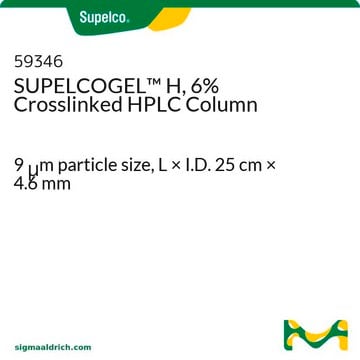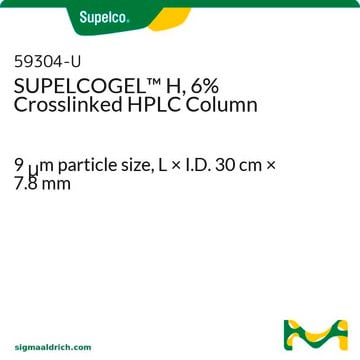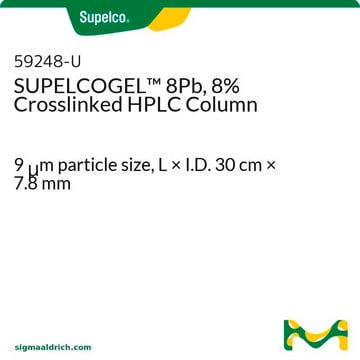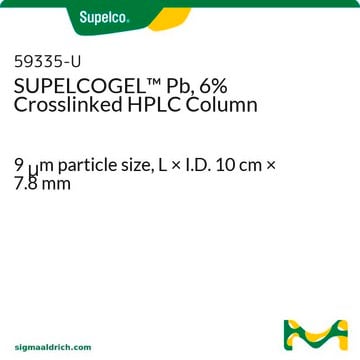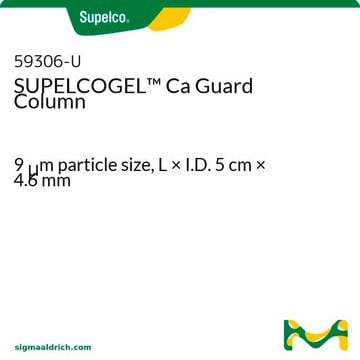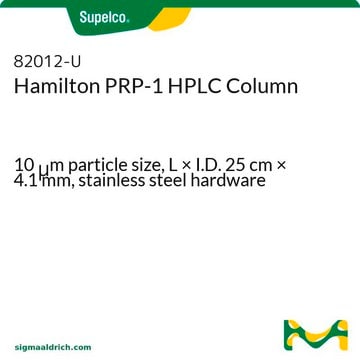59320-U
SUPELCOGEL™ C610 (9 µm) HPLC Columns
L × I.D. 30 cm × 7.8 mm
Synonym(s):
SUPELCOGEL™ 6% Cross Linked HPLC Columns
About This Item
Recommended Products
product name
SUPELCOGEL™ C610H, 6% Crosslinked HPLC Column, 9 μm particle size, L × I.D. 30 cm × 7.8 mm
material
stainless steel column
Quality Level
Agency
suitable for USP L17
product line
SUPELCOGEL™
feature
endcapped: no
packaging
1 ea of
parameter
85 °C max. temp.
technique(s)
HPLC: suitable
L × I.D.
30 cm × 7.8 mm
matrix
sulfonated polystyrene/divinylbenzene, spherical particle platform
polymeric
particle size
9 μm
separation technique
ion exclusion
Looking for similar products? Visit Product Comparison Guide
Related Categories
General description
Legal Information
Not finding the right product?
Try our Product Selector Tool.
guard cartridge
Storage Class Code
11 - Combustible Solids
WGK
WGK 3
Flash Point(F)
Not applicable
Flash Point(C)
Not applicable
Personal Protective Equipment
Choose from one of the most recent versions:
Certificates of Analysis (COA)
Sorry, we don't have COAs for this product available online at this time.
If you need assistance, please contact Customer Support.
Already Own This Product?
Find documentation for the products that you have recently purchased in the Document Library.
Customers Also Viewed
Articles
Learn more about Bioethanol as a renewable, alternative fuel traditionally produced by the yeast fermentation of sugar.
Protocols
Increasing corn-to-ethanol conversion and production yield drive discussions on fuel ethanol's economic and environmental viability in biofuel.
Increasing corn-to-ethanol conversion and production yield drive discussions on fuel ethanol's economic and environmental viability in biofuel.
Increasing corn-to-ethanol conversion and production yield drive discussions on fuel ethanol's economic and environmental viability in biofuel.
Increasing corn-to-ethanol conversion and production yield drive discussions on fuel ethanol's economic and environmental viability in biofuel.
Our team of scientists has experience in all areas of research including Life Science, Material Science, Chemical Synthesis, Chromatography, Analytical and many others.
Contact Technical Service

